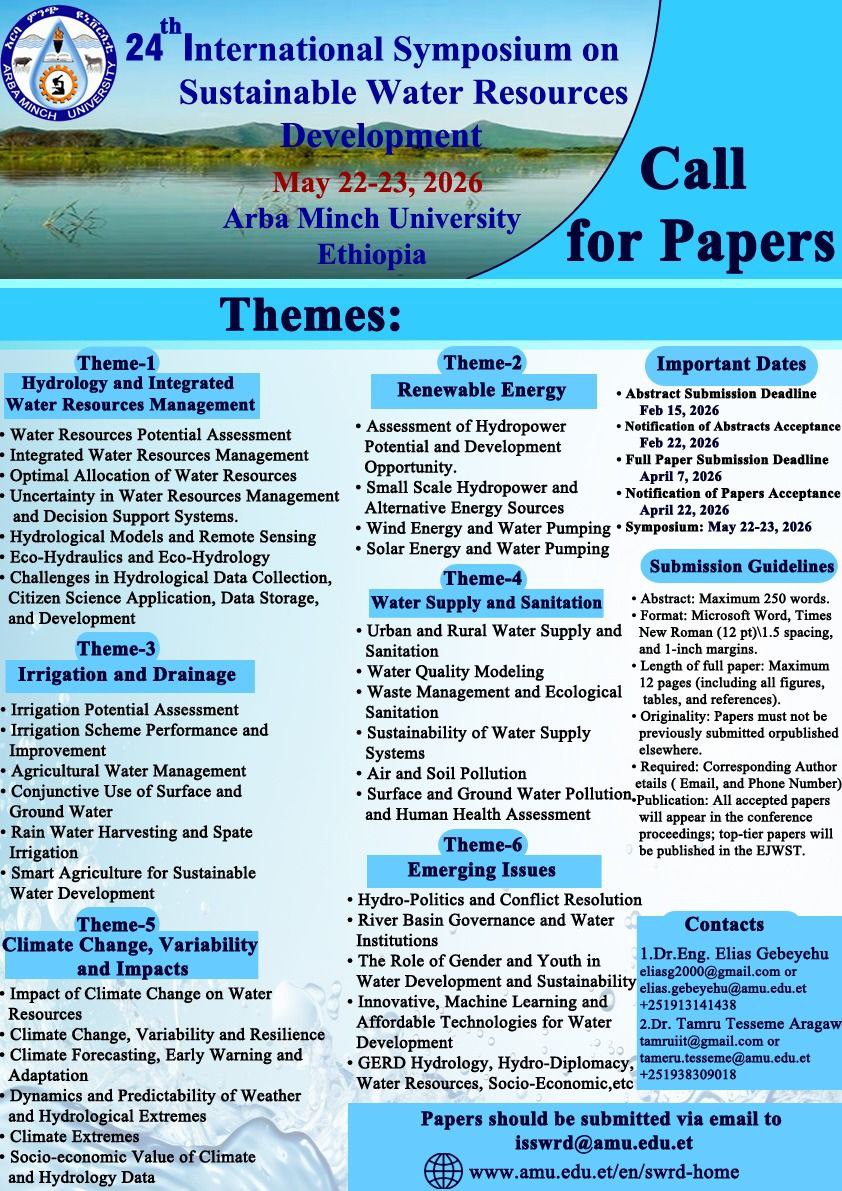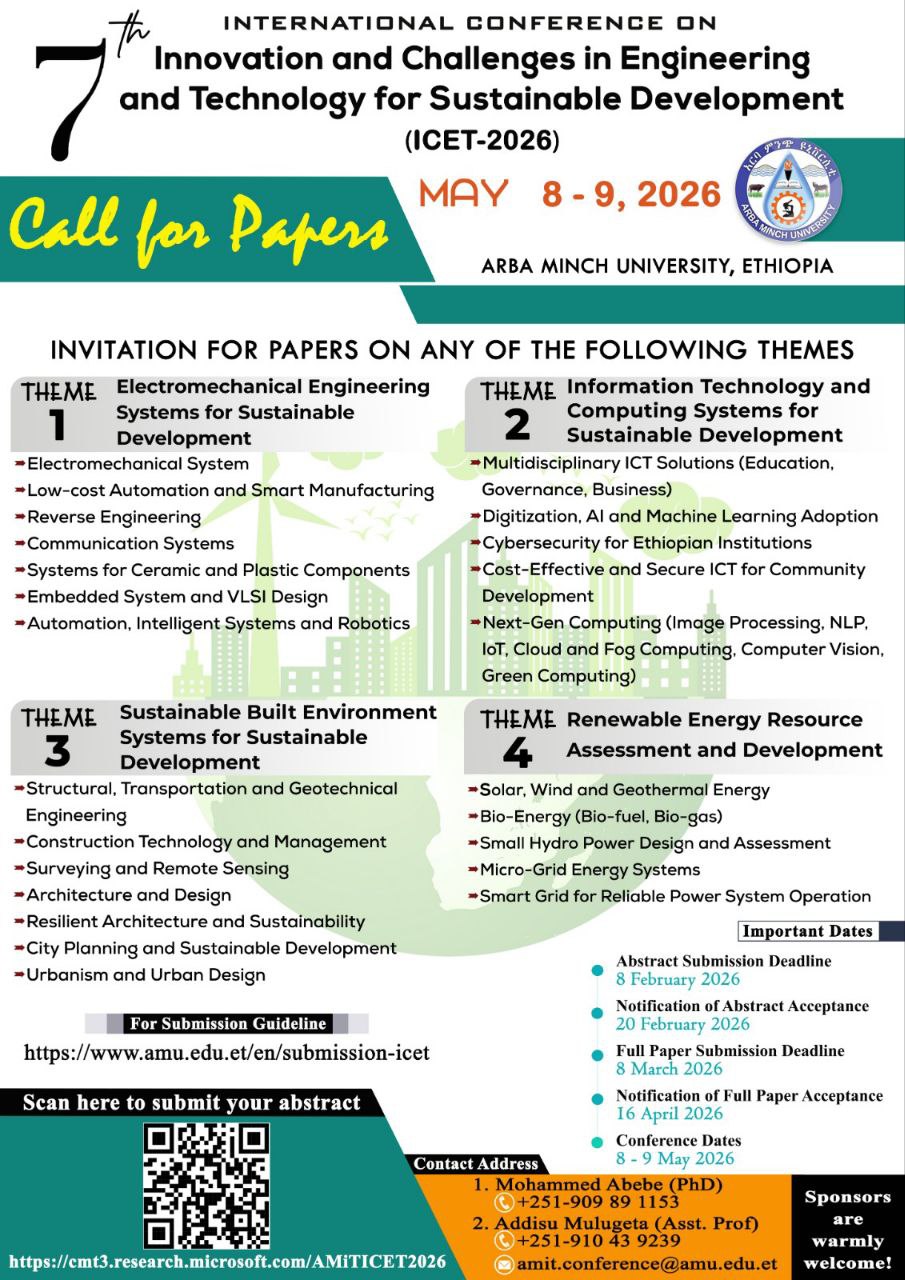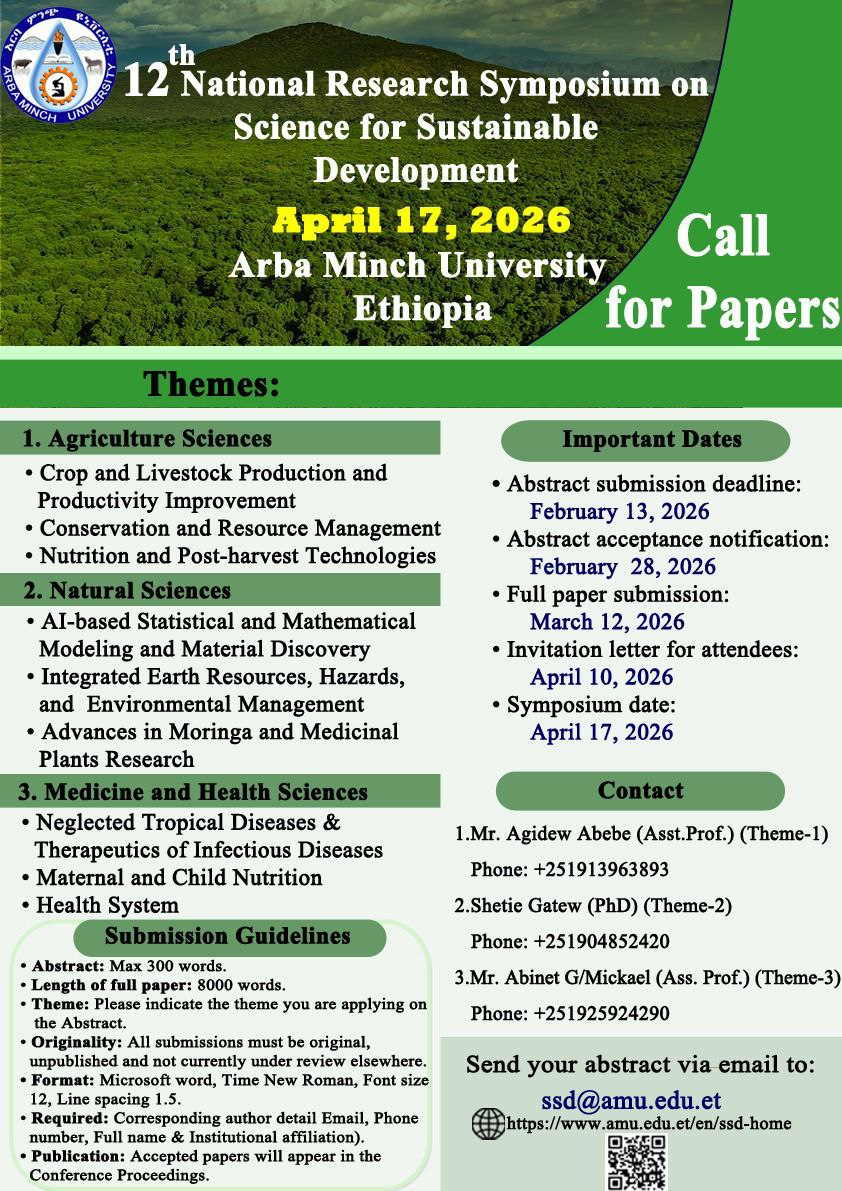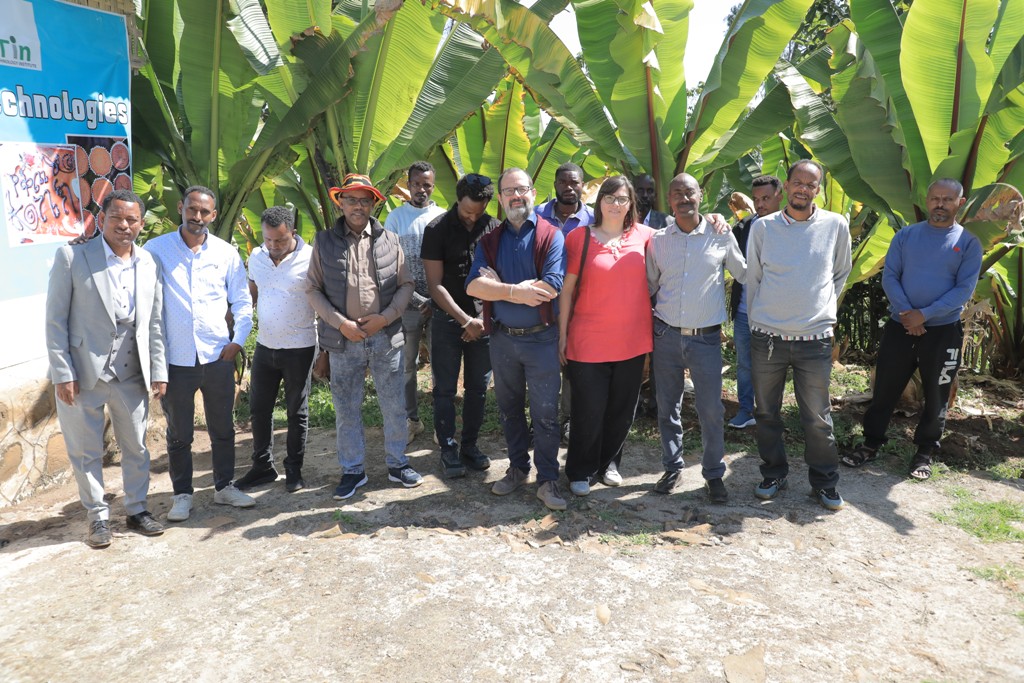A team of research partners from the International Centre for Genetic Engineering and Biotechnology (ICGEB), the Ethiopian Institute of Agricultural Research (EIAR), and the Bio and Emerging Technologies Institute (BETin) visited Arba Minch University’s Enset project fields and laboratories from December 14–15, 2024.Click here to see more photos
Dr. Engineer Abdela Kemal, Acting President of AMU, emphasized the university's role as a research institution dedicated to solving community challenges. He highlighted AMU’s ongoing initiatives to position the crop as Ethiopia’s next superfood and a global solution to food security. He expressed gratitude to the visiting institutions and AMU’s Enset research team for their collaborative efforts. He further underscored the university's commitment to transferring knowledge-based technologies to the community. “We are eager to continue and expand upon the work we have started and will fully support this project in every way possible,” he added.
Vice President for Research and Cooperation at Arba Minch University, Dr. Teklu Wegayehu, highlighted the institution's unwavering commitment to research, describing it as a top priority with consistent progress. He expressed the university's openness to collaborate with interested partners and extended gratitude to existing collaborators for their valuable support. Dr. Teklu also commended Dr. Addisu and his team for their exceptional contributions and innovative efforts in advancing the grant project.
Dr. Addisu Fekadu, Enset project Coordinator and co-applicant for the grant project supported by ICGEB, explained that currently Enset has over 25 million consumers in five Enset growing regions of Ethiopia. He emphasized that their project has already established 32 Enset processing pilot sites across the five Enset-growing regions but highlighted the need to scale up the functionality of the starter cultures and other techs. He also stated that the visit is organized to see the progress of the project which was funded by ICGEB. According to Dr. Addisu, the ICGEB project has offered numerous benefits, including building staff capacity, enhancing laboratory capabilities, and, most importantly, enabling the piloting and testing of products both in the market and in the field. At the end he added we collaboratively won a new £400,000 Bio-boost project from ICGEB. The visit was part of the new project being implemented in the next 2 and half years, by AMU, EIAR and BETin.
Following a two-day visit to Arba Minch University (AMU), Dr. Elena Benedetti, Head of Fundraising, Technology Transfer, and Innovation at the International Center for Genetic Engineering and Biotechnology (ICGEB), commended the University for its Efforts in advancing biotechnology research. She remarked that AMU is on the right track and pledged ICGEB's support to enhance research excellence, training, and technology transfer to industry. Dr. Elena emphasized that these efforts would contribute to sustainable global development and the realization of a hunger-free world.
Dr. Ashenafi Hailu, Project Coordinator and Researcher for SOS Ethiopia, highlighted the importance of working not only on Enset processing and technological innovations but also on enhancing its production. According to Dr. Ashenafi, scaling up Enset farms and improving seedling quality are critical to making Enset the future superfood. He stated that by advancing Enset processing technologies and expanding farming efforts, we can create an eco-friendly environment, address food security challenges, and bring about significant economic changes for local communities.
Dr. Dejene Girma, Director of Biotech Research at EIAR, stated that this field and laboratory visit is part of a larger project launched two days ago. He expressed pride in being part of the Bio-Boost project and highlighted their contributions, including providing starter cultures and improving Enset processing machinery.
One of the program participants, Dr. Fantahun W/senbet from BETin, stated that AMU and BETin collaborate on the research and development of Enset. He added that while AMU holds a significant portion of the project mandate, BETin is also responsible for conducting research and capacity-building activities to make Enset a more valuable crop globally. He emphasized that Enset was once considered an orphan crop, and collaborative efforts are essential to bring it to the forefront and address the nation’s food security challenges. Finally, he expressed his appreciation for the researchers’ dedication, noting his admiration for the impressive work observed in the laboratories and fields. He also thanked Dr. Addisu and his team for their relentless efforts to elevate Enset’s status and commended AMU’s commitment to making Enset a global agenda.
Arba Minch University
The Center of Bright Future!
For more Information Follow us on:-
Website - https://www.amu.edu.et/
Telegram - https://t.me/arbaminch_university
Facebook - https://www.facebook.com/ArbaMinchUniversityccd/
YouTube - https://www.youtube.com/channel/UCOO_nclhMo8M3r74OyPBlVA
Public and International Relations Executive





